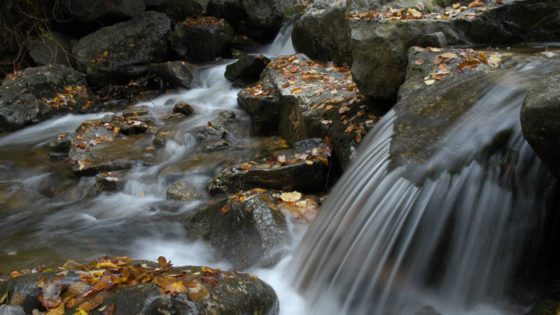FOR IMMEDIATE RELEASE: February 28, 2013
CONTACT:
Diane Huskinson, Stroud™ Water Research Center
Avondale, Pa. – Stroud™ Water Research Center has launched the Watershed Restoration Group to utilize the Stroud Center’s groundbreaking freshwater science to develop, research, implement, and monitor restoration projects throughout Pennsylvania and beyond.
Matthew Ehrhart, former Pennsylvania executive director of the Chesapeake Bay Foundation (CBF), joined the Stroud Center in January to head the Group. David Wise, also formerly of CBF, accompanied him to serve as the watershed restoration manager.
Ehrhart and Wise have spent much of their careers advancing stewardship of streams in the region, particularly by helping farms implement conservation measures. Ehrhart holds a Master of Engineering degree from Penn State’s Engineering Science Program. After working as an environmental scientist for LandStudies, Inc., he worked as a watershed restoration consultant before joining CBF, where as executive director he was responsible for overseeing a multimillion-dollar agricultural restoration initiative in Pennsylvania.
Wise received his Master of Science degree in Land Resources from the University of Wisconsin-Madison Institute for Environmental Studies. After serving as an environmental science instructor at Lancaster Mennonite High School, he joined CBF — first as a biologist and then as the Pennsylvania watershed restoration program manager.
Together, they will bring the Stroud Center’s mission full circle by sharing knowledge of best management practices (BMPs) and helping landowners, stakeholders, and the general public to implement them.
Center Director Bernard Sweeney said, “Our research, which spans over four decades, has taught us a lot about restoring streams and rivers. We share what we learn with the public through our education programs. Now we’re doubling that effort, using our research to create infrastructure to shape a brighter future for our water.”
The Watershed Restoration Group has already secured three grants.
One is provided through the National Fish and Wildlife Foundation (NFWF), with funding from the U.S. Environmental Protection Agency (EPA), the USDA Natural Resources Conservation Service, and Altria Group. It will allow the Group to develop a project to help farmers implement BMPs to address common water quality issues by providing technical assistance and advancing nutrient trading. Partners include more than a dozen public agencies and private groups, and an estimated 27 farms in Lancaster and surrounding counties will participate. A companion grant, provided by the Pa. Department of Environmental Protection’s Growing Greener Program, will expand these efforts to additional farms to address water quality impairments.
Another project supported by a grant from NFWF, with funding from the EPA and U.S. Forest Service, will demonstrate low-cost alternatives to existing buffer reforestation methods, which can be expensive and have shown mixed results. Methods to be demonstrated include natural regeneration, direct seeding, and live staking.

